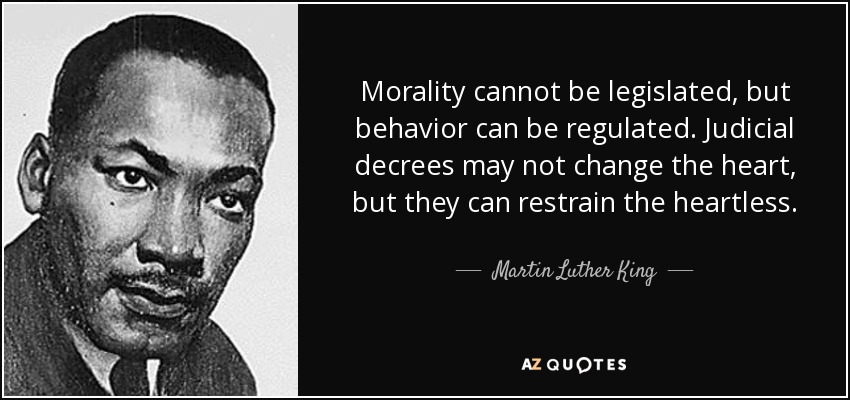First I think this should be in another topic category. A discussion thread on philosophy and thought or even morals and religion?
Of course we need morality if morality is seen as a way and means to the good life or the fair life for all. That seems obvious and as one of the speakers mentioned it is custom or mores. But humans can manipulate ideas of morality and fairness to mean the opposite of good or fair. Justice enters and makes this question more complex. Morality is about right and wrong and while we may disagree on the edges most people know what wrongs are, they just don't always adhere to them for personal reasons or to use an old concept evil or the devil. But as we reach down into more simple life issues we tend to lose the big picture and get into relativism or apply morality to what is simply tact or interpersonal behaviors. The odd thing for me is if we/you have to ask is it necessary, we have to posit a world without it. That world is not for me.
"We have, in fact, two kinds of morality side by side: one which we preach but do not practise, and another which we practise but seldom preach." Bertrand Russell
"It was morality that burned the books of the ancient sages, and morality that halted the free inquiry of the Golden Age and substituted for it the credulous imbecility of the Age of Faith. It was a fixed moral code and a fixed theology which robbed the human race of a thousand years by wasting them upon alchemy, heretic-burning, witchcraft and sacerdotalism." H. L. Mencken
"Morality is doing what is right, no matter what you are told. Religion is doing what you are told, no matter what is right." H. L. Mencken
"What was more, Hume ‘said flatly that the morality of every religion was bad, and … that when he heard a man was religious, he concluded he was a rascal, though he had known some instances of very good men being religious.’"
https://aeon.co/essays/why-atheists-erect-monuments-to-honour-freedom-and-reason
"Politics is opposed to morality, as philosophy to naivete." Emmanuel Levinas
"Consciousness permits us to develop the instruments of culture - morality and justice, religion, art, economics and politics, science and technology. Those instruments allow us some measure of freedom in the confrontation with nature." Antonio Damasio
"Live a good life. If there are gods and they are just, then they will not care how devout you have been, but will welcome you based on the virtues you have lived by. If there are gods, but unjust, then you should not want to worship them. If there are no gods, then you will be gone, but will have lived a noble life that will live on in the memories of your loved ones." Marcus Aurelius

